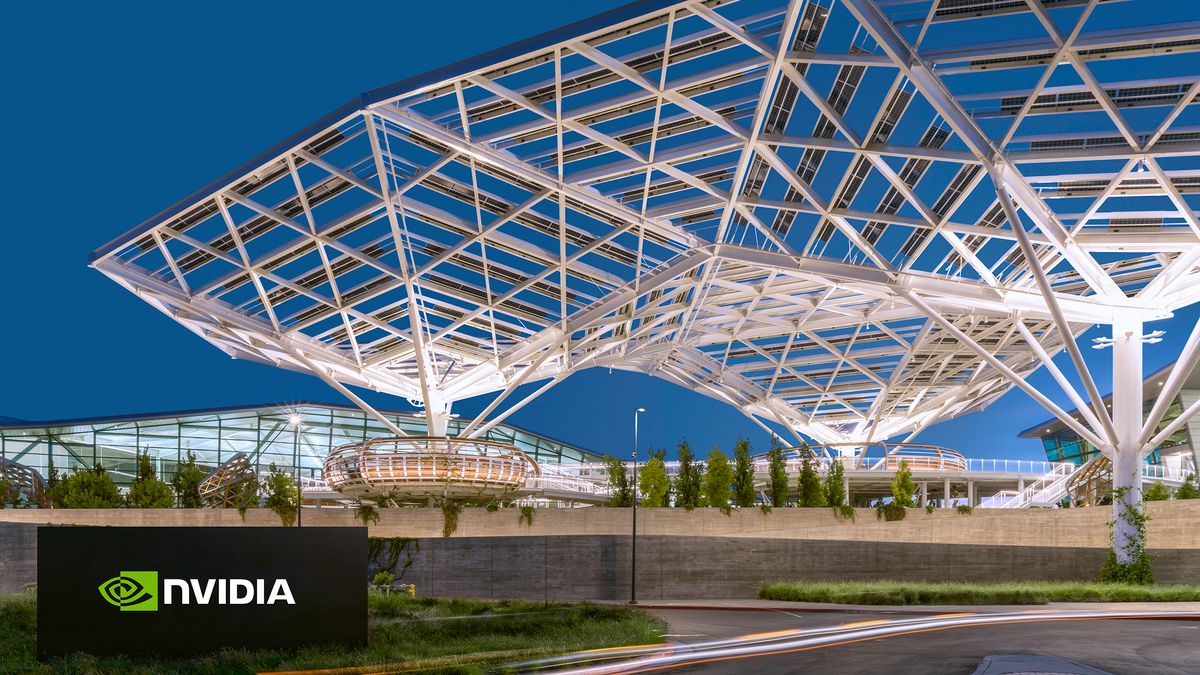US AI Diffusion Policy may harm Nvidia's sales — most of the chipmaker's AI GPUs are affected
Or might not, if reversed by the Trump Administration.

Under the proposed export rules of the outgoing U.S. government, American companies will be restricted from supplying AI GPUs to most countries on the planet. As the AI hardware market leader, Nvidia will suffer more than anyone, as it will have difficulty selling virtually all its GPUs to most countries worldwide.
The U.S. Government announced the proposed internal final rule concerning sales of American AI chips on January 15, 2025. The regulations aim to tighten oversight of AI diffusion and prevent unauthorized use of cutting-edge technologies by adversaries like China and Russia. Virtually all Nvidia GPUs will fall under the new rules, including DGX, HGX, and MGX systems, as well as A100, A800, H100, H200, H800, B100, B200, GB200, L4, L40S, and RTX 6000 Ada GPUs, according to a Form 8K report filed by Nvidia. The list does not include Blackwell GPUs for gamers, but it noted that the licensing requirement will consist of future Nvidia ICs, boards, or systems.
The IFR includes a 120-day notice and public comment period ending May 15, 2025. If the rule remains unchanged or is not withdrawn by the incoming Trump Administration, the new U.S. export rules will take effect on May 15, 2025. Nvidia does not explicitly say that the new regulations will hurt its sales. Still, the filing implies that the company warns investors about the potential impact of the incoming rules if enacted.
The proposed regulation divides countries into three tiers based on trust and risk levels. Tier 1 includes the U.S. and 18 close allies like Australia, Canada, Japan, Taiwan, the U.K., and much of Western Europe, which face minimal restrictions on AI exports. Tier 3 encompasses countries of concern, such as Belarus, China, Russia, and others under U.S. arms embargoes, which are effectively barred from receiving advanced U.S. AI GPUs. Tier 2 includes intermediate nations like the Baltic States, Israel, Poland, Saudi Arabia, and the United Arab Emirates, which face restrictions. Saudi Arabia and the UAE invest billions in AI data centers and hardware so that these restrictions will hurt both countries and Nvidia's sales to entities in the Middle East.
In Tier 2 countries, entities can import up to 1,700 Nvidia H100 GPUs (or equivalent) without a license, and these do not count toward national AI chip limits. These exemptions primarily cover smaller-scale purchases by universities, research institutions, and medical organizations for non-sensitive uses. It remains to be seen how this exception of the rules affects sales of Nvidia gaming GPUs. On the one hand, distributors tend to procure many high-end graphics cards to sell to their clients. Then major retailers indeed sell thousands of high-end graphics boards. However, no final customer has bought 1,700 graphics boards.
Large organizations in Tier 2 seeking significant quantities of GPUs must qualify as National Validated End Users (NVEUs). With NVEU status, they can acquire up to 320,000 H100 GPUs (or equivalent) by 2027 by meeting strict security requirements. Non-validated entities in Tier 2 can purchase up to 50,000 GPUs per country, which can increase to 100,000 through government agreements with the U.S.
For major AI developers working on complex models, even the 320,000-unit limit may be insufficient. These entities must apply for export licenses for additional GPUs. This process could cause delays, which is a pessimistic scenario for these companies but probably good news for U.S.-based Google, Microsoft, and OpenAI as they will have fewer real rivals from Tier 2 countries. For Nvidia, which currently sells everything it makes, the limitations may not immediately negatively affect its sales. However, as the market of AI hardware develops and processing capability requirements increase, the licensing requirements will probably impact its sales.
Stay On the Cutting Edge: Get the Tom's Hardware Newsletter
Get Tom's Hardware's best news and in-depth reviews, straight to your inbox.

Anton Shilov is a contributing writer at Tom’s Hardware. Over the past couple of decades, he has covered everything from CPUs and GPUs to supercomputers and from modern process technologies and latest fab tools to high-tech industry trends.
-
bit_user Nvidia seems really nervous about their stock price, especially with the litany of problems they've encountered with their Blackwell datacenter GPUs.Reply
https://www.tomshardware.com/tech-industry/artificial-intelligence/analysts-halve-nvidia-gb200-blackwell-shipment-forecasts-for-2025-prediction-contrasts-ai-boom
Also:
https://wccftech.com/nvidia-blackwell-ai-servers-faced-with-overheating-glitching-issues/
If you restrict their exports, on top of all that, their stock price seems especially untenable.